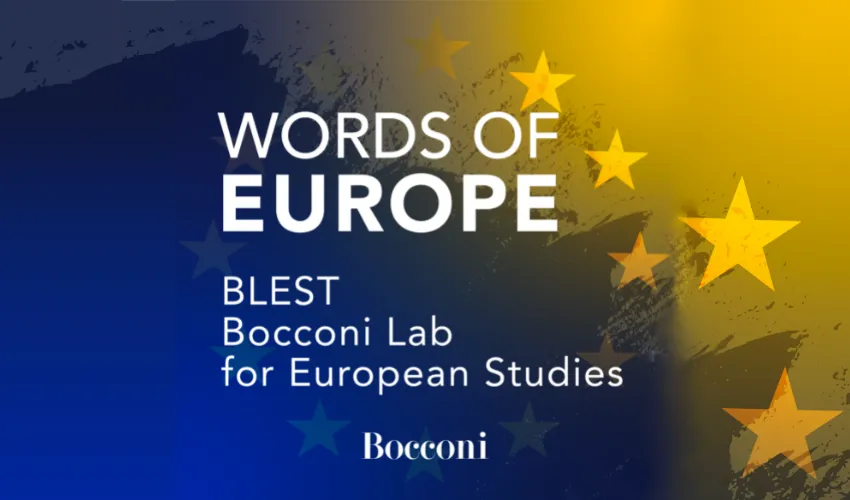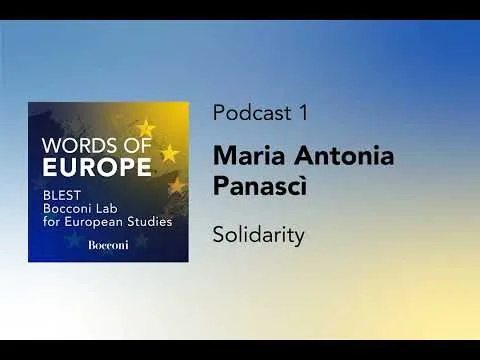
Words of Europe, Europe Put Simply
We are European citizens, but we are often inclined to consider the European Union as an abstract entity, which has little influence on our lives. In part this is a measure of its success: we are so used to certain achievements that we no longer consider them as such. This is precisely why the new podcast series Words of Europe, produced by the Bocconi Lab for European Studies (BLEST), was created.
By presenting some of the features of the EU in a simple way, the podcast seeks to give even those who do not have a specific legal or economic background the tools to actively take part in the discussion of opinions. In fact, says Eleanor Spaventa, director of BLEST, "we address all people interested in participating in an informed way in the public debate on the Union and its future."
The goal of the podcast, in the words of Graziella Romeo, professor at the Department of Legal Studies at Bocconi University and editor of the series, is to "tell the story of the European Union in a simple way, to highlight the way it operates and describe the solutions it has adopted for complex problems."
Each episode will deal with a theme or a keyword, chosen by deliberately giving greater weight to the proposals by younger BLEST researchers, about which correct information is essential even if (or precisely because) it is difficult to find it in newspapers or on social networks.
The first episodes will deal with the concepts of solidarity, active citizenship, and the NextGenerationEU project, on which young researchers Fulvia Ristuccia, Maria Antonia Panascì and Rosalba Famà have been working. All these topics have taken on a new meaning after the pandemic, and stand to change yet again in the Europe that will emerge from the dramatic events we are witnessing.
In the first episode, centered on the word solidarity, Maria Antonia Panascì traces the different meanings that the term has taken on in history from its origins in Roman law to the present day. In fact, the original legal meaning has come to embrace a more extensive concept of a political nature, whereby the idea of solidarity is at the basis of modern welfare systems. Over the centuries, the public duty to redistribute resources in an efficient and ethically sustainable manner has been added to the obligations that link private individuals ("in solido"). Above the nation-states, a new level was then created, that of European law; but if, on the one hand, a consensus has not yet been reached on what solidarity actually means within the European framework, on the other it has already begun to transcend the traditional national dimensions rooted in a nineteenth-century concept of citizenship.
Listen to the episode and follow the series on:
Spotify
Apple Podcasts
Spreaker
Solidarity | Podcast #1
